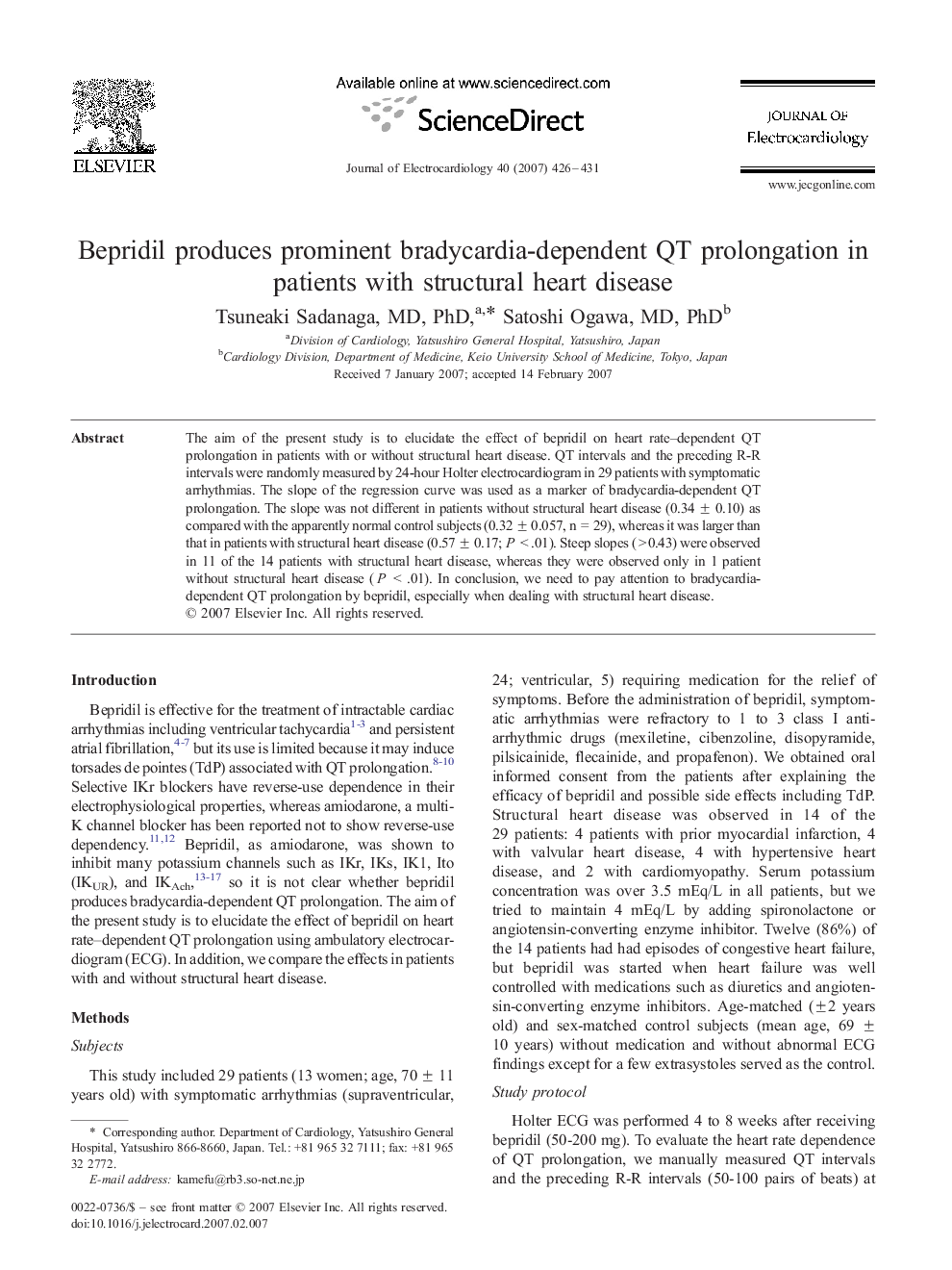| Article ID | Journal | Published Year | Pages | File Type |
|---|---|---|---|---|
| 2969134 | Journal of Electrocardiology | 2007 | 6 Pages |
The aim of the present study is to elucidate the effect of bepridil on heart rate–dependent QT prolongation in patients with or without structural heart disease. QT intervals and the preceding R-R intervals were randomly measured by 24-hour Holter electrocardiogram in 29 patients with symptomatic arrhythmias. The slope of the regression curve was used as a marker of bradycardia-dependent QT prolongation. The slope was not different in patients without structural heart disease (0.34 ± 0.10) as compared with the apparently normal control subjects (0.32 ± 0.057, n = 29), whereas it was larger than that in patients with structural heart disease (0.57 ± 0.17; P < .01). Steep slopes (>0.43) were observed in 11 of the 14 patients with structural heart disease, whereas they were observed only in 1 patient without structural heart disease (P < .01). In conclusion, we need to pay attention to bradycardia-dependent QT prolongation by bepridil, especially when dealing with structural heart disease.
